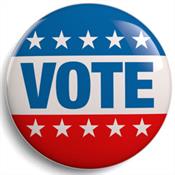Subscribe for Weekly Updates

More than Municipal Primaries: The Constitution and Courts on the Ballot

 By Peter N. Calcara, vice president - government relations and Alexandra Fabian, manager – government relations
By Peter N. Calcara, vice president - government relations and Alexandra Fabian, manager – government relations
Pennsylvania’s primary elections are Tuesday, May 18, 2021. Municipal elections are typically low-key, but they can be as important as the more high-profile elections: voters go to the polls to nominate statewide and local judges, and to draw up the slate for numerous county and local offices. These elections do not attract the media attention or money that national and state elections do, but they are critical. Much of politics is local, to paraphrase former speaker of the U.S. House Thomas P. O’Neill, and voters this month will determine who will vie for positions in the county courthouse, township, boroughs, and school boards.
This year’s primary election, however, has added significance. Voters will have a say in the partisan battles we’ve seen play out in Harrisburg between the Wolf administration and Republicans in the General Assembly over the handling of the COVID-19 pandemic. This election will determine how such events will be handled in the future.
 Three proposed amendments to the state Constitution will appear on the May 18 ballot: one that prohibits discrimination based on race or ethnicity, and two that limit the length of emergency declarations and require more collaboration between the different branches of government during a disaster. A fourth ballot question will also allow voters to decide whether paid fire and rescue organizations should have additional borrowing power.
Three proposed amendments to the state Constitution will appear on the May 18 ballot: one that prohibits discrimination based on race or ethnicity, and two that limit the length of emergency declarations and require more collaboration between the different branches of government during a disaster. A fourth ballot question will also allow voters to decide whether paid fire and rescue organizations should have additional borrowing power.
This blog provides a nonpartisan, factual look at the proposed amendments. We also encourage you to do independent research prior to election day.
Here are the ballot questions this year.
Termination or Extension of Disaster Emergency Declarations
Shall the Pennsylvania Constitution be amended to change existing law and increase the power of the General Assembly to unilaterally terminate or extend a disaster emergency declaration—and the powers of Commonwealth agencies to address the disaster regardless of its severity pursuant to that declaration—through passing a concurrent resolution by simple majority, thereby removing the existing check and balance of presenting a resolution to the governor for approval or disapproval?
Disaster Emergency Declaration and Management
Shall the Pennsylvania Constitution be amended to change existing law so that a disaster emergency declaration will expire automatically after 21 days, regardless of the severity of the emergency, unless the General Assembly takes action to extend the disaster emergency; the governor may not declare a new disaster emergency to respond to the dangers facing the Commonwealth unless the General Assembly passes a concurrent resolution; and the General Assembly enacts new laws for disaster management?
Prohibition Against Denial or Abridgement of Equality of Rights Because of Race or Ethnicity
Shall the Pennsylvania Constitution be amended by adding a new section providing that equality of rights under the law shall not be denied or abridged because of an individual’s race or ethnicity?
The actual language for each amendment can be found here.
In the fourth ballot question, voters will decide whether municipal fire departments or companies with paid personnel and emergency medical services companies are eligible to apply for loans from an already existing state loan program. Pennsylvania voters approved the incurring of indebtedness of up to $100 million in four previous statewide referenda: $10 million on Nov. 4, 1975; $15 million on Nov. 3, 1981; $25 million on Nov. 6, 1990; and $50 million on Nov. 5, 2002. Originally, this indebtedness funded a loan program for volunteer fire companies, volunteer ambulance services and volunteer rescue squads.
All Pennsylvania voters, regardless of political party or affiliation, may vote on the ballot questions on May 18, but to vote for a political party’s candidates in the primary, you have to be registered as a member of that party.
In addition to these four initiatives, voters will choose a successor for state Supreme Court Justice Thomas Saylor (R), whose term will expire on Dec. 31, 2021. The list of general election candidates is incomplete pending results from the primary.
The judicial races featured at the top of the ticket and at the local level could have a substantial impact on your community and the state criminal justice systems. The following additional statewide and state level offices are eligible for elections: justice of the superior court, judge of the commonwealth court, judge of the court of common pleas, and judge of the municipal court.
Here is a list of the candidates for the state supreme court:
Democratic Party primary candidate
Republican Party primary candidates
For more insight, check out the 2021 Judicial Election Voter Guide from the Pennsylvania Coalition for Civil Justice Reform, of which the PICPA is a member. It includes questionnaire responses from candidates for supreme, superior, and commonwealth courts.
For the 2021 municipal election vacancies, you can view a chart on the Department of State’s website.
Elections have consequences. The CPA-PAC board encourages PICPA members to educate themselves on the candidates and the issues before going into the voting booth on May 18. Your vote matters.
Sign up for weekly professional and technical updates from PICPA's blogs, podcasts, and discussion board topics by completing this form, or subscribe to the government relations team's weekly Legislative Update newsletter.







Leave a commentOrder by
Newest on top Oldest on top